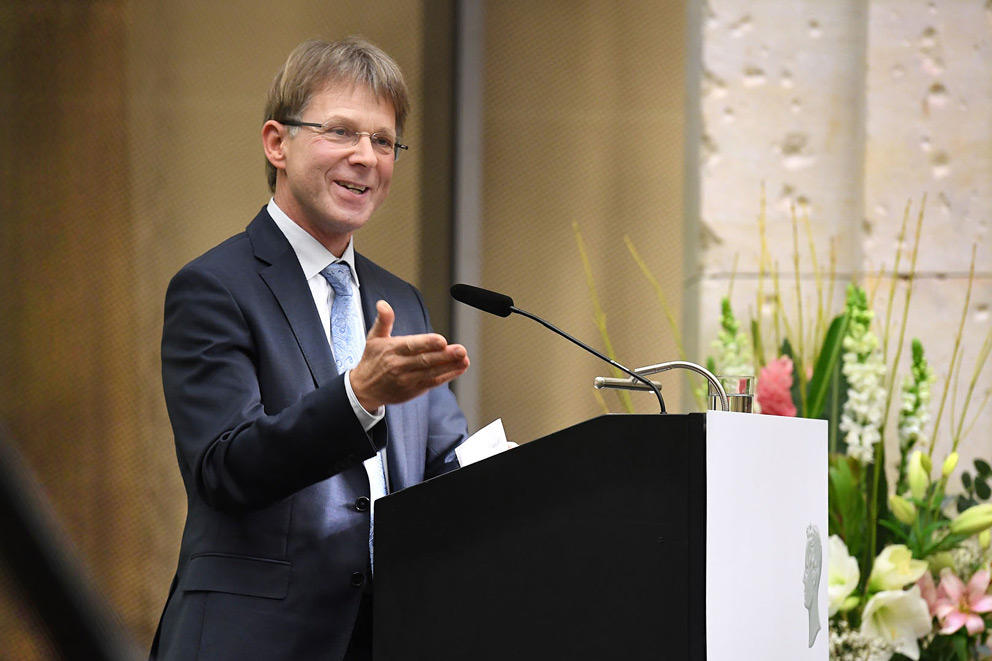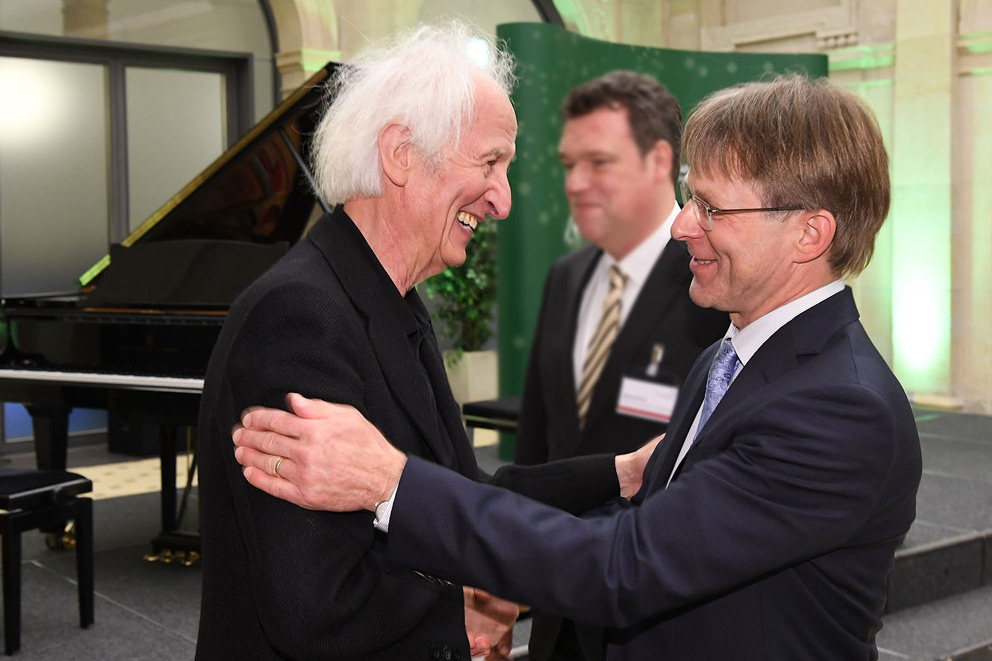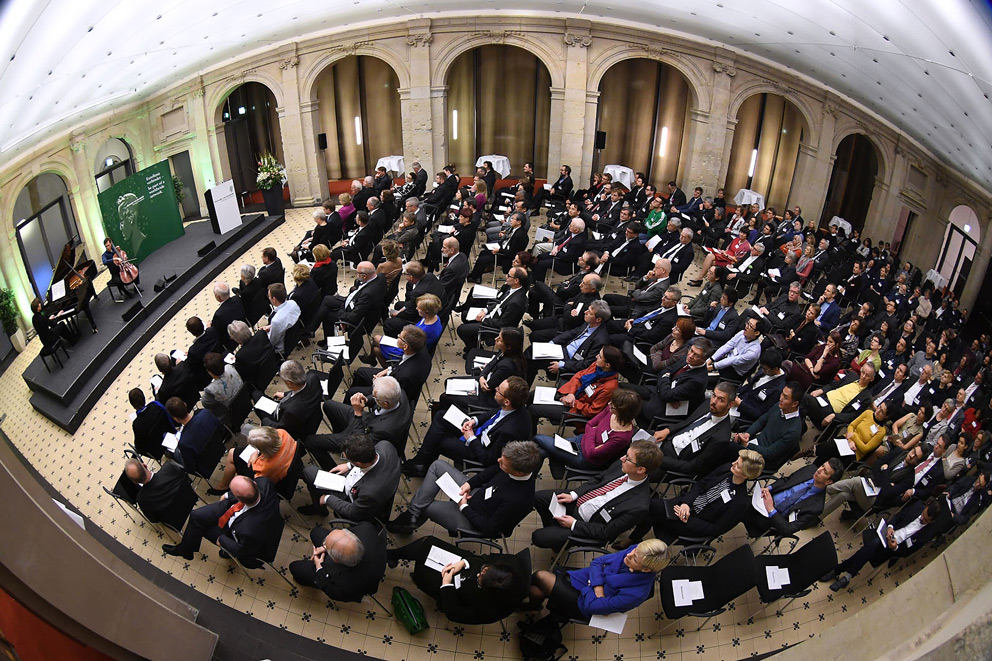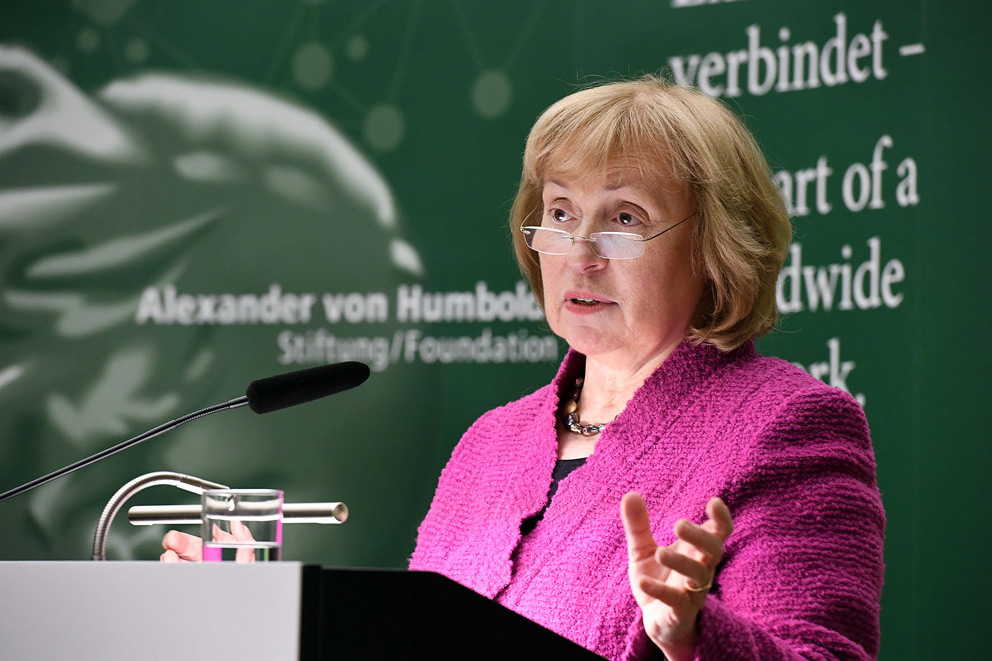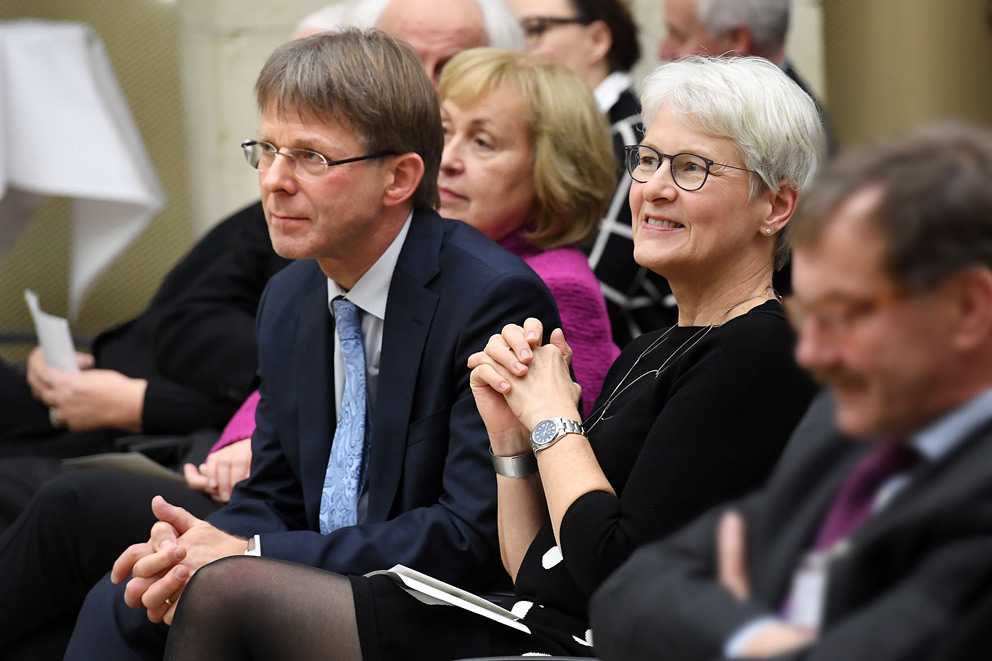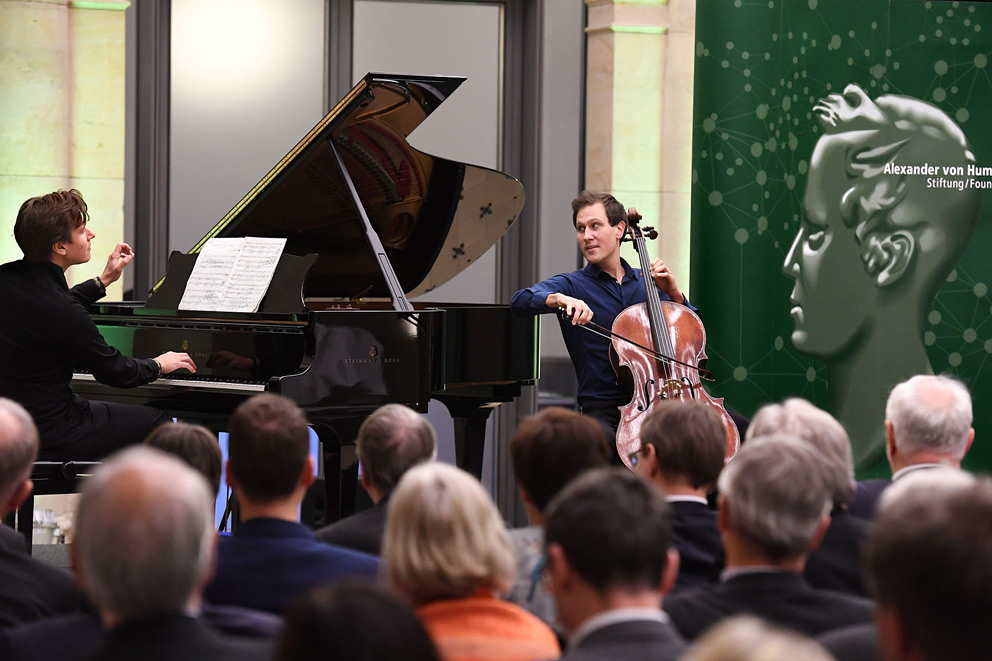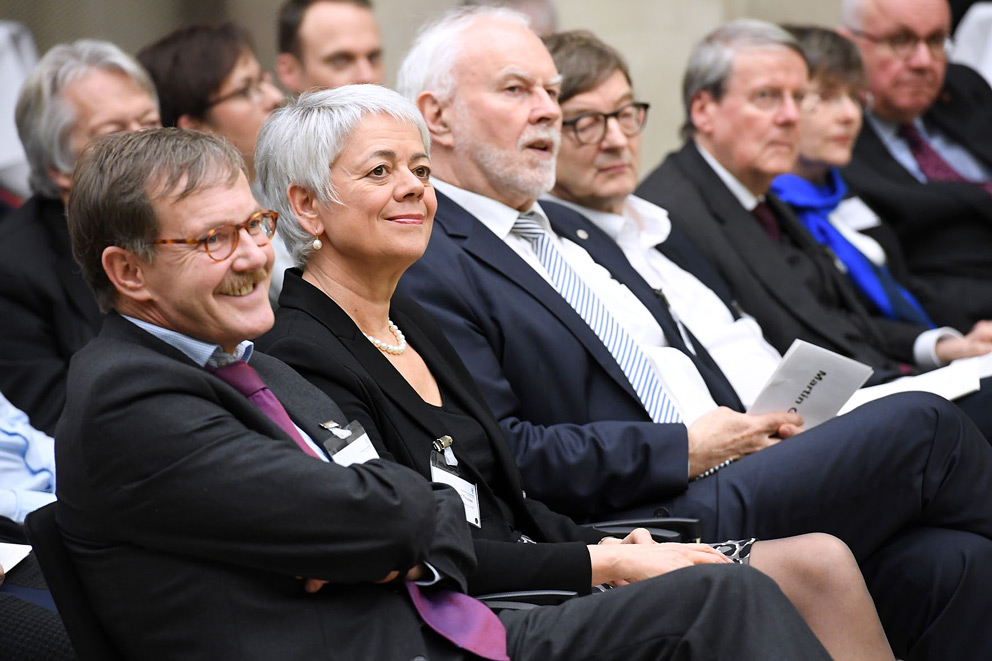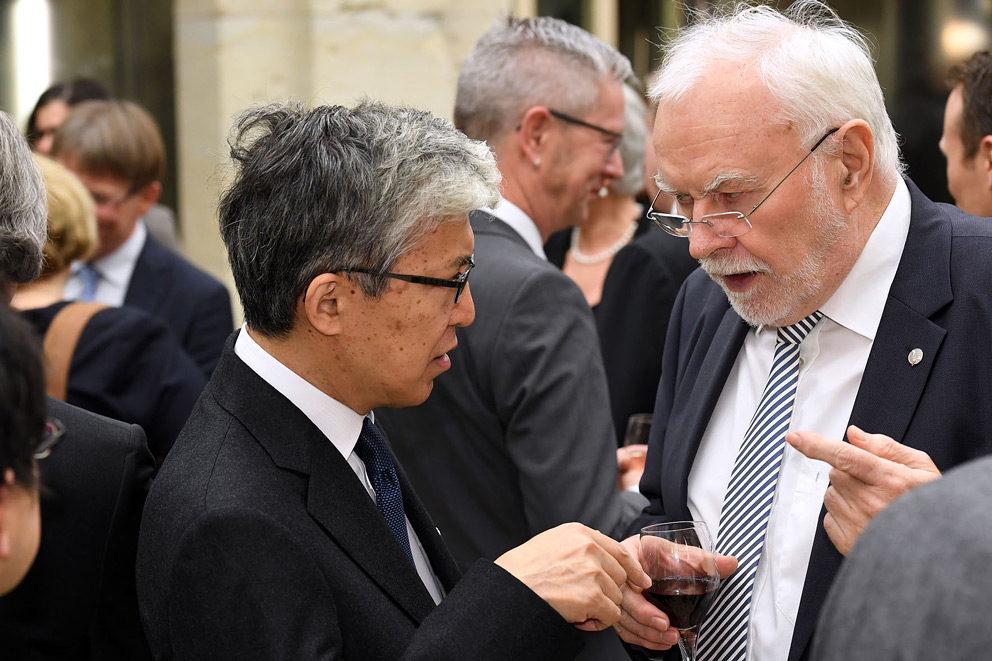
Kontakt
Presse, Kommunikation und Marketing
Tel.: +49 228 833-144
Fax: +49 228 833-441
presse[at]avh.de
Hans-Christian Pape, the new President of the Alexander von Humboldt Foundation, campaigns for more civic engagement on the part of research.
The science community must address societal challenges more than it has in the past, says neurophysiologist Hans-Christian Pape, the new President of the Alexander von Humboldt Foundation, who considers this one of the central issues for his term of office. “At the political level, we are seeing a re-emergence of nationalism, isolationism and radical standpoints. Our work, the involvement of our fellows and awardees in more than 140 countries around the world is an antidote to such tendencies,” Pape told journalists in Berlin today.
“Scientists and scholars in the Foundation's global network take on responsibility and are driving forces for progress, change and public debate. Some of them are even at risk due to their work or the opinions they have expressed in public. With our Philipp Schwartz Fellowship for threatened researchers we help these individuals and offer them safe haven at German universities. We must not let up in our efforts to promote science as a counter model to closed societies and radical policies, a model that proves the benefits of international cooperation and open mindedness,” the Foundation's new president stressed on Friday. Hans-Christian Pape held his inaugural address (PDF) the previous evening at the Humboldt Foundation's New Year's reception in Berlin with approximately 300 international guests from the science community, political sector and industry as well as Humboldtians.
Speaking to journalists on Friday, Pape stressed that the science sector is also facing societal challenges: "We are additionally seeing a growing amount of scepticism and even hostility towards science that extends all the way to conspiracy theories. Even more than in the past, we must take on communication with the public as our job and, as representatives of the science community, provide answers regarding how, for example, we can exert influence in today's digital echo chambers and reach sceptics who have made themselves comfortable in in their filter bubbles. We want to undertake this task with our partners in the Alliance of Science Organisations in Germany.”
Pape also called for self-criticism: “Aren't we also to blame that science has lost some of it credibility? I believe the answer here is yes. Starting with the pressure to publish and the resultant overheating of our review system, and extending to the hasty publication of alleged findings which later have to be retracted, all the way to deliberate tampering or falsification and other forms of scientific misconduct. We must strengthen our powers of self-purification, our scientific immune system.”
However, besides societal tasks, Pape continued, the Foundation must first and foremost compete successfully in the international arena with its own funding programmes. This also means being able to respond to growing demand: “For several years now, we have noted that interest in our fellowships has grown whilst the number of fellowships we can award hasn't kept pace because we don't have sufficient funding to do so. As a result, we have to turn down many outstanding applicants whom we actually should assist. This frustrates a lot of scientists in Germany who propose a researcher for a fellowship with the aim of working together. Therefore, being able to award more fellowships is one of our goals,” Pape explained.
The neurophysiologist Hans-Christian Pape assumed office as the new President of the Alexander von Humboldt Foundation in January 2018. He teaches and conducts research at the University of Münster. The brain researcher ranks among the leading experts on the neurophysiological underpinnings of emotional behaviour. Pape has gained particular recognition for his research on anxiety and anxiety disorders, fear and fear memory as well as the processes regulating wakefulness and sleep. For this work he has received numerous prestigious research awards including the Gottfried Wilhelm Leibniz Prize and the Max Planck Research Award which is awarded by the Alexander von Humboldt Foundation together with the Max Planck Society.
In addition to conducting research, Hans-Christian Pape is active in a number of advisory and consultative bodies at national and international level. These include the Wissenschaftsrat (German Council of Science and Humanities) where he was a member from 2011 to 2017. This body advises Germany's federal and state governments on the development of the country's universities, science and research with respect to their content and structure. During his tenure as a member of the Wissenschaftsrat Pape last headed the Scientific Commission and was intermittently a member of the Wissenschaftsrat's Executive Committee. He has been a member of the Selection Commission for the Deutsche Forschungsgemeinschaft's (German Research Foundation) Gottfried Wilhelm Leibniz Prize since 2017.
The Alexander von Humboldt Foundation
Every year, the Alexander von Humboldt Foundation enables more than 2,000 researchers from all over the world to spend time researching in Germany. The Foundation maintains a network of well over 28,000 Humboldtians from all disciplines in more than 140 countries worldwide – including 55 Nobel Prize winners.

